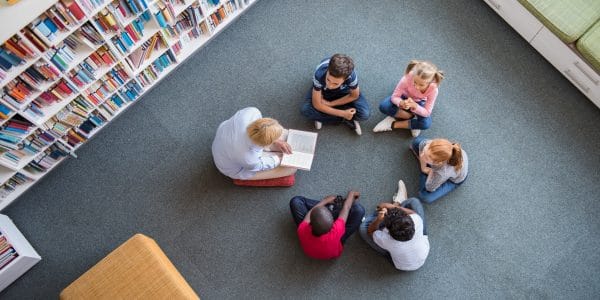
09/07/21
2 min read
A new report from the Education Policy Institute (EPI), funded by the Nuffield Foundation, provides new insights into the educational outcomes of pupils in England, Scotland, Wales and Northern Ireland since devolution.
The EPI study, which draws on the detailed Millennium Cohort Study of children born around 2000 and compares outcomes in reading, vocabulary, language and maths, finds that pupils in Wales perform much closer to those in England than has been previously reported in international PISA results, where Wales trailed England significantly.
Scottish pupils are shown to perform better than other UK nations at a very young age, but this quickly recedes as Scottish pupils get older, with pupils falling behind England in most performance measures, particularly in maths.
Pupils in Northern Ireland lead the way among UK nations in most measures of pupil outcomes, even moving ahead of the region of London, which is often widely revered for its high level of educational attainment. The highly positive outcomes displayed by pupils in Northern Ireland through the EPI study are more positive than seen in other international comparisons.
The four nations of the UK have increasingly taken separate paths on education policy since devolution in 1999 – with England focusing on increasing school autonomy, and Scotland, Wales and Northern Ireland abolishing league tables and external testing.
Despite this, the EPI study is one of only a few to explore how this divergence may have affected pupil performance over the last two decades.
While policymakers typically turn to the OECD’s PISA results to compare pupil performance to their international counterparts, these assessments provide only a snapshot of pupil outcomes at the age of 15, missing how they evolve throughout childhood.
By drawing on the Millennium Cohort Study, the new EPI study shows how UK countries perform across a range of educational and skills measures throughout childhood from age 3 to 14. Unlike previous international comparisons, the report also controls for several differences in pupils’ demographics, socio-economic backgrounds and early life conditions, allowing for more similar comparisons.
Commenting on the new report, Luke Sibieta, author and Research Fellow at the Education Policy Institute (EPI), said:
“Many of our new findings on pupil outcomes across the UK differ from the established international PISA results, which are frequently used by countries to compare educational performance.
“Our research shows that with the exception of reading, pupils in Wales perform at a higher level than has been found by PISA, largely matching England. There is also a much more positive picture in Northern Ireland, where pupils lead the way in the UK under most performance measures – even out-performing high-flying London.
“Scottish pupils start off strongly at a young age, but then quickly fall behind their UK peers, particularly in maths, which we know has been an issue that Scotland has had to grapple with for several years.
“A lot of commentary has focused on the abolition of league tables and testing since devolution. But this is too simplistic and unlikely to be the major explanation for differences. Much more attention needs to be paid to different teaching approaches and the curriculum across nations. To help countries make improvements in education, we need to see a far greater focus on comparing pupil outcomes across the whole of the UK.”




































